40 start with O start with O
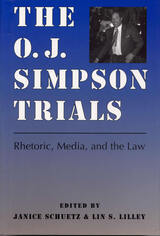
The O. J. Simpson case captured the attention of the public like no other event in media history, and the Simpson criminal trial is arguably the most notable example of the media's ability to transform litigation. This collection of original essays provides a critical analysis of the Simpson criminal and civil trials. Edited by communications professor Janice Schuetz and professional trial consultant Lin S. Lilley, the book focuses on telelitigation, the media's transformation of sensational trials, with celebrity defendants and victims, into telemediated forms.
The contributors—Ann Burnett, Patricia M. Ganer, Ann M. Gill, Diane Furno-Lamude, Lin S. Lilley, and Janice Schuetz—describe media spectacles, analyze the opening statements of trial attorneys in both cases, investigate the testimony of Mark Fuhrman in the criminal trial and O. J. Simpson in the civil trial, analyze the summations of trial attorneys in both cases, look at the processes of jury decision making, and identify the unique legal and social outcomes of the trials.
The discussions focus on five "hot button" legal issues sparked by the Simpson trials: the perceived unfairness of the jury system; unprecedented calls for jury reform in both civil and criminal arenas; the fairness issues of jury nullification, wherein a jury disregards the law in a criminal case in favor of leniency; wealth and the question of "buying" justice; and ethical questions about the ways the Simpson trials were conducted, in particular the ways in which Simpson attorney Johnnie Cochran and the "Dream Team" repeatedly nudged and occasionally crossed the ethical line.
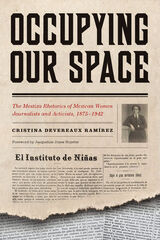
Occupying Our Space sheds new light on the contributions of Mexican women journalists and writers during the late nineteenth and early twentieth centuries, marked as the zenith of Mexican journalism. Journalists played a significant role in transforming Mexican social and political life before and after the Revolution (1910–1920), and women were a part of this movement as publishers, writers, public speakers, and political activists. However, their contributions to the broad historical changes associated with the Revolution, as well as the pre- and post-revolutionary eras, are often excluded or overlooked.
This book fills a gap in feminine rhetorical history by providing an in-depth look at several important journalists who claimed rhetorical puestos, or public speaking spaces. The book closely examines the writings of Laureana Wright de Kleinhans (1842–1896), Juana Belén Gutiérrez de Mendoza (1875–1942), the political group Las mujeres de Zitácuaro (1900), Hermila Galindo (1896–1954), and others. Grounded in the overarching theoretical lens of mestiza rhetoric, Occupying Our Space considers the ways in which Mexican women journalists negotiated shifting feminine identities and the emerging national politics of the late nineteenth and early twentieth centuries. With full-length Spanish primary documents along with their translations, this scholarship reframes the conversation about the rhetorical and intellectual role women played in the ever-changing political and identity culture in Mexico.

A fascinating survey of the history of political and economic ideas in the US that have led to an increasingly entrenched ultra-rich class of oligarchs
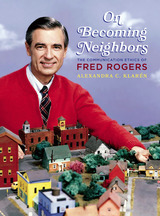
Winner, 2020 NCA Top Single-Author Book of the Year Award
Fred Rogers is an American cultural and media icon, whose children’s television program, Mister Rogers’ Neighborhood, ran for more than thirty years (1967-2001) on the Public Broadcasting System. In this highly original book, communication scholar Alexandra C. Klarén shows how Rogers captured the moral, social, and emotional imaginations of multiple generations of Americans. She explores the nuanced complexity of the thought behind the man and the program, the dialogical integration of his various influences, and the intentional ethic of care behind the creation of a program that spoke to the affective, cultural, and educational needs of children (and adults) during a period of cultural and political upheaval. Richly informed by newly available archival materials, On Becoming Neighbors chronicles the evolution of Rogers’ thought on television, children, pedagogy, and the family through a rhetorical, cultural, and ethical lens. Klarén probes how Rogers creates the conditions for dialogue in which participants explore possibilities and questions relating to the social and material world.

Three rhetorical treatises.
Cicero (Marcus Tullius, 106–43 BC), Roman lawyer, orator, politician and philosopher, of whom we know more than of any other Roman, lived through the stirring era that saw the rise, dictatorship, and death of Julius Caesar in a tottering republic. In his political speeches especially and in his correspondence we see the excitement, tension and intrigue of politics and the part he played in the turmoil of the time. Of about 106 speeches, delivered before the Roman people or the Senate if they were political, before jurors if judicial, fifty-eight survive (a few of them incompletely). In the fourteenth century Petrarch and other Italian humanists discovered manuscripts containing more than 900 letters of which more than 800 were written by Cicero and nearly 100 by others to him. These afford a revelation of the man all the more striking because most were not written for publication. Six rhetorical works survive and another in fragments. Philosophical works include seven extant major compositions and a number of others; and some lost. There is also poetry, some original, some as translations from the Greek.
The Loeb Classical Library edition of Cicero is in twenty-nine volumes.
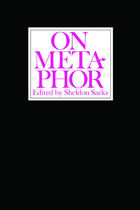
Because of its comprehensive scope, the volume is useful both as a resource for those interested in contemporary philosophy and theories of language and as a text for courses in such areas as the philosophy of language, critical theory, and the philosophy of knowledge. Originally published as a special issue of Critical Inquiry, the present collection includes two new contributions by Max Black and Nelson Goodman, along with a comprehensive index to the work.

Fallacies, contraries, consistencies.
Aristotle, great Greek philosopher, researcher, reasoner, and writer, born at Stagirus in 384 BC, was the son of a physician. He studied under Plato at Athens and taught there (367–347); subsequently he spent three years at the court of a former pupil in Asia Minor. After some time at Mitylene, in 343–342 he was appointed by King Philip of Macedon to be tutor of his teen-aged son Alexander. After Philip’s death in 336, Aristotle became head of his own school (of “Peripatetics”), the Lyceum at Athens. Because of anti-Macedonian feeling there after Alexander’s death in 323, he withdrew to Chalcis in Euboea, where he died in 322.
Nearly all the works Aristotle prepared for publication are lost; the priceless ones extant are lecture-materials, notes, and memoranda (some are spurious). They can be categorized as follows:
I Practical: Nicomachean Ethics; Great Ethics (Magna Moralia); Eudemian Ethics; Politics; Economics (on the good of the family); On Virtues and Vices.
II Logical: Categories; Analytics (Prior and Posterior); Interpretation; Refutations used by Sophists; Topica.
III Physical: Twenty-six works (some suspect) including astronomy, generation and destruction, the senses, memory, sleep, dreams, life, facts about animals, etc.
IV Metaphysics: on being as being.
V Art: Rhetoric and Poetics.
VI Other works including the Constitution of Athens; more works also of doubtful authorship.
VII Fragments of various works such as dialogues on philosophy and literature; and of treatises on rhetoric, politics, and metaphysics.
The Loeb Classical Library edition of Aristotle is in twenty-three volumes.
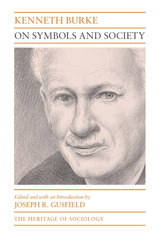
In his superb introductory essay, Joseph R. Gusfield traces the development of Burke's approach to human action and its relationship to other similar sources of theory and ideas in sociology; he discusses both Burke's influence on sociologists and the limits of his perspective. Burke regards literature as a form of human behavior—and human behavior as embedded in language. His lifework represents a profound attempt to understand the implications for human behavior based on the fact that humans are "symbol-using animals." As this volume demonstrates, the work that Burke produced from the 1930s through the 1960s stands as both precursor and contemporary key to recent intellectual movements such as structuralism, symbolic anthropology, phenomenological and interpretive sociology, critical theory, and the renaissance of symbolic interaction.
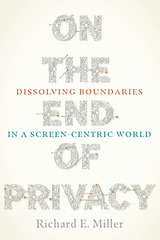
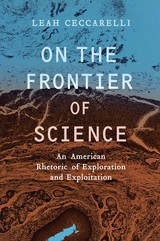
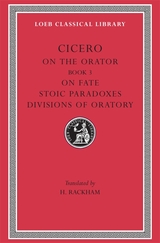
The philosopher-statesman on ethics and rhetoric.
Cicero (Marcus Tullius, 106–43 BC), Roman lawyer, orator, politician and philosopher, of whom we know more than of any other Roman, lived through the stirring era that saw the rise, dictatorship, and death of Julius Caesar in a tottering republic. In his political speeches especially and in his correspondence we see the excitement, tension and intrigue of politics and the part he played in the turmoil of the time. Of about 106 speeches, delivered before the Roman people or the Senate if they were political, before jurors if judicial, fifty-eight survive (a few of them incompletely). In the fourteenth century Petrarch and other Italian humanists discovered manuscripts containing more than 900 letters of which more than 800 were written by Cicero and nearly 100 by others to him. These afford a revelation of the man all the more striking because most were not written for publication. Six rhetorical works survive and another in fragments. Philosophical works include seven extant major compositions and a number of others; and some lost. There is also poetry, some original, some as translations from the Greek.
The Loeb Classical Library edition of Cicero is in twenty-nine volumes.

The philosopher-statesman on ethics and rhetoric.
Cicero (Marcus Tullius, 106–43 BC), Roman lawyer, orator, politician and philosopher, of whom we know more than of any other Roman, lived through the stirring era that saw the rise, dictatorship, and death of Julius Caesar in a tottering republic. In his political speeches especially and in his correspondence we see the excitement, tension and intrigue of politics and the part he played in the turmoil of the time. Of about 106 speeches, delivered before the Roman people or the Senate if they were political, before jurors if judicial, fifty-eight survive (a few of them incompletely). In the fourteenth century Petrarch and other Italian humanists discovered manuscripts containing more than 900 letters of which more than 800 were written by Cicero and nearly 100 by others to him. These afford a revelation of the man all the more striking because most were not written for publication. Six rhetorical works survive and another in fragments. Philosophical works include seven extant major compositions and a number of others; and some lost. There is also poetry, some original, some as translations from the Greek.
The Loeb Classical Library edition of Cicero is in twenty-nine volumes.
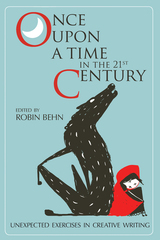
Fun and innovative exercises and prompts for creative writing students
Once Upon a Time in the Twenty-First Century: Unexpected Exercises in Creative Writing is a unique creative writing text that will appeal to a wide range of readers and writers—from grade nine through college and beyond. Successful creative writers from numerous genres constructed these exercises, including poetry, fiction, and creative nonfiction to one-act plays, song lyrics, genre fiction, travel guides, comics and beyond. The exercises use a broad range of creative approaches, aesthetics, and voices, all with an emphasis on demystifying the writing process and having fun.
Editor Robin Behn has divided the book into three writing sections: Genres and Forms, Sources and Methods, and Style and Subject. In each section, Behn offers a brief introduction which explains how to get started and specific ways to develop one’s writing. Each introduction is followed by extensive exercises that draw on literature from classic to contemporary, as well as other art forms and popular culture. Examples range from Flannery O’Connor and Langston Hughes to Allen Ginsberg and Gertrude Stein, from Jamaica Kincaid and James Joyce to Arlo Guthrie and Harryette Mullen. Integrated within the exercises are apt examples of student writings that have emerged from actual use of the exercises in both the classroom and in writing groups. The book concludes with general advice and direction on how to get published.
Based on years of hands-on experiences in the teaching of creative writing in high schools, colleges, and after-school writing clubs, this volume of exercises offers inestimable value to students and teachers in the traditional classroom, as well as a growing number of homeschoolers, those who are part of a writing club or group, and independent writers and learners of all ages.

Kroll cultivates a bodily investigation of noncombative argument, offering direct pedagogical strategies anchored in three modalities of learning—conceptual-procedural, kinesthetic, and contemplative—and projects, activities, assignments, informal responses, and final papers for students. Kinesthetic exercises derived from martial arts and contemplative meditation and mindfulness practices are key to the approach, with Kroll specifically using movement as a physical analogy for tactics of arguing.
Collaboration, mediation, and empathy are important yet overlooked values in communicative exchange. This practical, engaging, and accessible guide for teachers contains clear examples and compelling discussions of pedagogical strategies that teach students not only how to write persuasively but also how to deal with personal conflict in their daily lives.
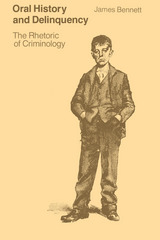

Ancient Rome’s original archconservative.
M. Porcius Cato (234–149 BC), one of the best-known figures of the middle Roman Republic, remains legendary for his political and military career, especially his staunch opposition to Carthage; his modest way of life; his integrity of character and austere morality; his literary works, composed in a style at once sophisticated and down-to-earth; his pithy sayings; and his drive to define and to champion Roman national character and traditions in the face of challenges from Greek culture. Cato’s legend derived to no small degree from his own distinctive and compelling self-presentation, which established a model later developed and elaborated by Cicero and by subsequent literary and historical authors for centuries to come.
This volume and its companion (LCL 551) join the Loeb edition of Cato’s only extant work, On Agriculture (LCL 283), by supplying all testimonia about, and all fragments by or attributed to Cato. Highlights are Origines, the first historical work attested in Latin, a history of Rome from its founding to the onset of the first Punic War, as well as the origins of major Italian cities; his orations, regarded as the beginning of Roman oratory; To His Son Marcus, which inaugurated a Roman tradition of didactic pieces addressed by fathers to their sons; Military Matters; the Poem on Morals; letters; commentaries on civil law; and memorable sayings.

Meticulous eloquence.
Publius Aelius Aristides Theodorus was among the most celebrated, versatile, and influential authors of the Second Sophistic era and an important figure in the transmission of Hellenism. Born to wealthy landowners in Mysia in AD 117, he studied in Athens and Pergamum and had begun a promising oratorical career when in the early 140s he fell chronically ill and retreated to the healing shrine of Asclepius in Pergamum. There he began to follow a lifelong series of dream revelations and instructions from the god that inspired the six autobiographical books of Sacred Tales, an invaluable record of both temple therapy and personal religious experience published in the 170s. By 147 Aristides was able to resume his public activities as a member of the landed and gubernatorial elite and to pursue a successful oratorical career. Based at his family estate in Smyrna, he traveled between bouts of illness and produced speeches and lectures for both public and private occasions, declamations on historical themes, polemical works, prose hymns, and essays on a wide variety of subjects, all of it displaying deep and creative familiarity with the classical literary heritage. He died between 180 and 185.
This edition of Aristides’ complete works offers fresh translations and texts based on the critical editions of Lenz-Behr (Orations 1–16) and Keil (Orations 17–53). Volume I contains the Panathenaic Oration, a historical appreciation of classical Athens and Aristides’ most influential work, and A Reply to Plato, the first of three essays taking issue with the attack on orators and oratory delivered in Plato’s Gorgias.

The preeminent orator of ancient Athens.
Demosthenes (384–322 BC), orator at Athens, was a pleader in law courts who later became also a statesman, champion of the past greatness of his city and the present resistance of Greece to Philip of Macedon’s rise to supremacy. We possess by him political speeches and law-court speeches composed for parties in private cases and political cases. His early reputation as the best of Greek orators rests on his steadfastness of purpose, his sincerity, his clear and pungent argument, and his severe control of language. In his law cases he is the advocate, in his political speeches a castigator not of his opponents but of their politics. Demosthenes gives us vivid pictures of public and private life of his time.
The Loeb Classical Library edition of Demosthenes is in seven volumes.

Meticulous eloquence.
Publius Aelius Aristides Theodorus was among the most celebrated, versatile, and influential authors of the Second Sophistic era and an important figure in the transmission of Hellenism. Born to wealthy landowners in Mysia in AD 117, he studied in Athens and Pergamum and had begun a promising oratorical career when in the early 140s he fell chronically ill and retreated to the healing shrine of Asclepius in Pergamum. There he began to follow a lifelong series of dream revelations and instructions from the god that inspired the six autobiographical books of Sacred Tales, an invaluable record of both temple therapy and personal religious experience published in the 170s. By 147 Aristides was able to resume his public activities as a member of the landed and gubernatorial elite and to pursue a successful oratorical career. Based at his family estate in Smyrna, he traveled between bouts of illness and produced speeches and lectures for both public and private occasions, declamations on historical themes, polemical works, prose hymns, and essays on a wide variety of subjects, all of it displaying deep and creative familiarity with the classical literary heritage. He died between 180 and 185.
This edition of Aristides’ complete works offers fresh translations and texts based on the critical editions of Lenz-Behr (Orations 1–16) and Keil (Orations 17–53). Volume II contains Oration 3 (In Defense of the Four) and Oration 4, (A Reply to Capito), which along with Oration 2 take issue with the attack on orators and oratory delivered in Plato’s Gorgias.

The preeminent orator of ancient Athens.
Demosthenes (384–322 BC), orator at Athens, was a pleader in law courts who later became also a statesman, champion of the past greatness of his city and the present resistance of Greece to Philip of Macedon’s rise to supremacy. We possess by him political speeches and law-court speeches composed for parties in private cases and political cases. His early reputation as the best of Greek orators rests on his steadfastness of purpose, his sincerity, his clear and pungent argument, and his severe control of language. In his law cases he is the advocate, in his political speeches a castigator not of his opponents but of their politics. Demosthenes gives us vivid pictures of public and private life of his time.
The Loeb Classical Library edition of Demosthenes is in seven volumes.

The preeminent orator of ancient Athens.
Demosthenes (384–322 BC), orator at Athens, was a pleader in law courts who later became also a statesman, champion of the past greatness of his city and the present resistance of Greece to Philip of Macedon’s rise to supremacy. We possess by him political speeches and law-court speeches composed for parties in private cases and political cases. His early reputation as the best of Greek orators rests on his steadfastness of purpose, his sincerity, his clear and pungent argument, and his severe control of language. In his law cases he is the advocate, in his political speeches a castigator not of his opponents but of their politics. Demosthenes gives us vivid pictures of public and private life of his time.
The Loeb Classical Library edition of Demosthenes is in seven volumes.

The preeminent orator of ancient Athens.
Demosthenes (384–322 BC), orator at Athens, was a pleader in law courts who later became also a statesman, champion of the past greatness of his city and the present resistance of Greece to Philip of Macedon’s rise to supremacy. We possess by him political speeches and law-court speeches composed for parties in private cases and political cases. His early reputation as the best of Greek orators rests on his steadfastness of purpose, his sincerity, his clear and pungent argument, and his severe control of language. In his law cases he is the advocate, in his political speeches a castigator not of his opponents but of their politics. Demosthenes gives us vivid pictures of public and private life of his time.
The Loeb Classical Library edition of Demosthenes is in seven volumes.

The preeminent orator of ancient Athens.
Demosthenes (384–322 BC), orator at Athens, was a pleader in law courts who later became also a statesman, champion of the past greatness of his city and the present resistance of Greece to Philip of Macedon’s rise to supremacy. We possess by him political speeches and law-court speeches composed for parties in private cases and political cases. His early reputation as the best of Greek orators rests on his steadfastness of purpose, his sincerity, his clear and pungent argument, and his severe control of language. In his law cases he is the advocate, in his political speeches a castigator not of his opponents but of their politics. Demosthenes gives us vivid pictures of public and private life of his time.
The Loeb Classical Library edition of Demosthenes is in seven volumes.

The preeminent orator of ancient Athens.
Demosthenes (384–322 BC), orator at Athens, was a pleader in law courts who later became also a statesman, champion of the past greatness of his city and the present resistance of Greece to Philip of Macedon’s rise to supremacy. We possess by him political speeches and law-court speeches composed for parties in private cases and political cases. His early reputation as the best of Greek orators rests on his steadfastness of purpose, his sincerity, his clear and pungent argument, and his severe control of language. In his law cases he is the advocate, in his political speeches a castigator not of his opponents but of their politics. Demosthenes gives us vivid pictures of public and private life of his time.
The Loeb Classical Library edition of Demosthenes is in seven volumes.

The preeminent orator of ancient Athens.
Demosthenes (384–322 BC), orator at Athens, was a pleader in law courts who later became also a statesman, champion of the past greatness of his city and the present resistance of Greece to Philip of Macedon’s rise to supremacy. We possess by him political speeches and law-court speeches composed for parties in private cases and political cases. His early reputation as the best of Greek orators rests on his steadfastness of purpose, his sincerity, his clear and pungent argument, and his severe control of language. In his law cases he is the advocate, in his political speeches a castigator not of his opponents but of their politics. Demosthenes gives us vivid pictures of public and private life of his time.
The Loeb Classical Library edition of Demosthenes is in seven volumes.
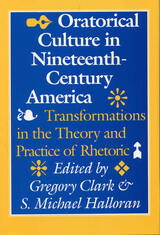
Gregory Clark and S. Michael Halloran bring together nine essays that explore change in both the theory and the practice of rhetoric in the nineteenth-century United States.
In their introductory essay, Clark and Halloran argue that at the beginning of the nineteenth century, rhetoric encompassed a neoclassical oratorical culture in which speakers articulated common values to establish consensual moral authority that directed community thought and action. As the century progressed, however, moral authority shifted from the civic realm to the professional, thus expanding participation in the community as it fragmented the community itself. Clark and Halloran argue that this shift was a transformation in which rhetoric was reconceived to meet changing cultural needs.
Part I examines the theories and practices of rhetoric that dominated at the beginning of the century. The essays in this section include "Edward Everett and Neoclassical Oratory in Genteel America" by Ronald F. Reid, "The Oratorical Poetic of Timothy Dwight" by Gregory Clark, "The Sermon as Public Discourse: Austin Phelps and the Conservative Homiletic Tradition in Nineteenth-Century America" by Russel Hirst, and "A Rhetoric of Citizenship in Nineteenth-Century America" by P. Joy Rouse.
Part 2 examines rhetorical changes in the culture that developed during that century. The essays include "The Popularization of Nineteenth-Century Rhetoric: Elocution and the Private Learner" by Nan Johnson, "Rhetorical Power in the Victorian Parlor: Godey’s Lady’s Book and the Gendering of Nineteenth-Century Rhetoric" by Nicole Tonkovich, "Jane Addams and the Social Rhetoric of Democracy" by Catherine Peaden, "The Divergence of Purpose and Practice on the Chatauqua: Keith Vawter’s Self-Defense" by Frederick J.Antczak and Edith Siemers, and "The Rhetoric of Picturesque Scenery: A Nineteenth-Century Epideictic" by S. Michael Halloran.

A central work in the history of rhetoric.
Quintilian, born in Spain about AD 35, became a widely known and highly successful teacher of rhetoric in Rome. The Orator’s Education (Institutio Oratoria), a comprehensive training program in twelve books, draws on his own rich experience. It is a work of enduring importance, not only for its insights on oratory, but for the picture it paints of education and social attitudes in the Roman world.
Quintilian offers both general and specific advice. He gives guidelines for proper schooling (beginning with the young boy); analyzes the structure of speeches; recommends devices that will engage listeners and appeal to their emotions; reviews a wide range of Greek and Latin authors of use to the orator; and counsels on memory, delivery, and gestures.
Donald Russell’s five-volume Loeb Classical Library edition of The Orator’s Education, which replaces an eighty-year-old translation by H. E. Butler, provides a text and facing translation that are fully up to date in light of current scholarship and well tuned to today’s manner of expression. Russell also provides unusually rich explanatory notes, which enable full appreciation of this central work in the history of rhetoric.

A central work in the history of rhetoric.
Quintilian, born in Spain about AD 35, became a widely known and highly successful teacher of rhetoric in Rome. The Orator’s Education (Institutio Oratoria), a comprehensive training program in twelve books, draws on his own rich experience. It is a work of enduring importance, not only for its insights on oratory, but for the picture it paints of education and social attitudes in the Roman world.
Quintilian offers both general and specific advice. He gives guidelines for proper schooling (beginning with the young boy); analyzes the structure of speeches; recommends devices that will engage listeners and appeal to their emotions; reviews a wide range of Greek and Latin authors of use to the orator; and counsels on memory, delivery, and gestures.
Donald Russell’s five-volume Loeb Classical Library edition of The Orator’s Education, which replaces an eighty-year-old translation by H. E. Butler, provides a text and facing translation that are fully up to date in light of current scholarship and well tuned to today’s manner of expression. Russell also provides unusually rich explanatory notes, which enable full appreciation of this central work in the history of rhetoric.

A central work in the history of rhetoric.
Quintilian, born in Spain about AD 35, became a widely known and highly successful teacher of rhetoric in Rome. The Orator’s Education (Institutio Oratoria), a comprehensive training program in twelve books, draws on his own rich experience. It is a work of enduring importance, not only for its insights on oratory, but for the picture it paints of education and social attitudes in the Roman world.
Quintilian offers both general and specific advice. He gives guidelines for proper schooling (beginning with the young boy); analyzes the structure of speeches; recommends devices that will engage listeners and appeal to their emotions; reviews a wide range of Greek and Latin authors of use to the orator; and counsels on memory, delivery, and gestures.
Donald Russell’s five-volume Loeb Classical Library edition of The Orator’s Education, which replaces an eighty-year-old translation by H. E. Butler, provides a text and facing translation that are fully up to date in light of current scholarship and well tuned to today’s manner of expression. Russell also provides unusually rich explanatory notes, which enable full appreciation of this central work in the history of rhetoric.

A central work in the history of rhetoric.
Quintilian, born in Spain about AD 35, became a widely known and highly successful teacher of rhetoric in Rome. The Orator’s Education (Institutio Oratoria), a comprehensive training program in twelve books, draws on his own rich experience. It is a work of enduring importance, not only for its insights on oratory, but for the picture it paints of education and social attitudes in the Roman world.
Quintilian offers both general and specific advice. He gives guidelines for proper schooling (beginning with the young boy); analyzes the structure of speeches; recommends devices that will engage listeners and appeal to their emotions; reviews a wide range of Greek and Latin authors of use to the orator; and counsels on memory, delivery, and gestures.
Donald Russell’s five-volume Loeb Classical Library edition of The Orator’s Education, which replaces an eighty-year-old translation by H. E. Butler, provides a text and facing translation that are fully up to date in light of current scholarship and well tuned to today’s manner of expression. Russell also provides unusually rich explanatory notes, which enable full appreciation of this central work in the history of rhetoric.

A central work in the history of rhetoric.
Quintilian, born in Spain about AD 35, became a widely known and highly successful teacher of rhetoric in Rome. The Orator’s Education (Institutio Oratoria), a comprehensive training program in twelve books, draws on his own rich experience. It is a work of enduring importance, not only for its insights on oratory, but for the picture it paints of education and social attitudes in the Roman world.
Quintilian offers both general and specific advice. He gives guidelines for proper schooling (beginning with the young boy); analyzes the structure of speeches; recommends devices that will engage listeners and appeal to their emotions; reviews a wide range of Greek and Latin authors of use to the orator; and counsels on memory, delivery, and gestures.
Donald Russell’s five-volume Loeb Classical Library edition of The Orator’s Education, which replaces an eighty-year-old translation by H. E. Butler, provides a text and facing translation that are fully up to date in light of current scholarship and well tuned to today’s manner of expression. Russell also provides unusually rich explanatory notes, which enable full appreciation of this central work in the history of rhetoric.
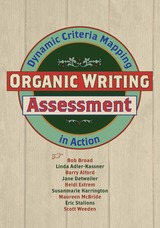
For the authors of Organic Writing Assessment, the DCM experience provided not only an authentic assessment of their own programs, but a nuanced language through which they can converse in the always vexing, potentially divisive realm of assessment theory and practice. Of equal interest are the adaptations these writers invented for Broad’s original process, to make DCM even more responsive to local needs and exigencies.
Organic Writing Assessment represents an important step in the evolution of writing assessment in higher education. This volume documents the second generation of an assessment model that is regarded as scrupulously consistent with current theory; it shows DCM’s flexibility, and presents an informed discussion of its limits and its potentials.
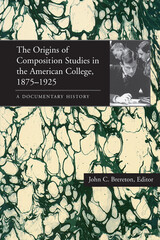
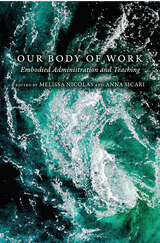
Open exchanges enable complex and nuanced conversations about intersectionality and how racism, sexism, classism, and ableism (among other “isms”) create systems of power. Contributors examine how these conversations are framed around work, practices, policies, and research and identify ways to create inclusive, embodied practices in writing programs and classrooms. The collection is organized to maximize representation in the areas of race, gender, identity, ability, and class by featuring scholarly chapters followed by narratively focused interchapters that respond to and engage with the scholarly work.
The honest and emotionally powerful stories in Our Body of Work expose problematic and normalizing policies, practices, and procedures and offer diverse theories and methodologies that provide multiple paths for individuals to follow to make the academy more inclusive and welcoming for all bodies. It will be an important resource for researchers, as well a valuable addition to graduate and undergraduate syllabi on embodiment, writing instruction/pedagogy, and WPA work.
Contributors: Dena Arendall, Janel Atlas, Hayat Bedaiwi, Elizabeth Boquet, Lauren Brentnell, Triauna Carey, Denise Comer, Joshua Daniel, Michael Faris, Rebecca Gerdes-McClain, Morgan Gross, Nabila Hijazi, Jacquelyn Hoermann-Elliott, Maureen Johnson, Jasmine Kar Tang, Elitza Kotzeva, Michelle LaFrance, Jasmine Lee, Lynn C. Lewis, Mary Lourdes Silva, Rita Malenczyk, Anna Rita Napoleone, Julie Prebel, Rebecca Rodriguez Carey, Ryan Skinnell, Trixie Smith, Stacey Waite, Kelsey Walker, Shannon Walters, Isaac Wang, Jennie Young
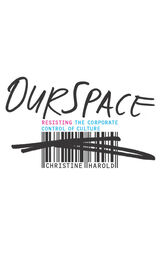
When reporters asked about the Bush administration’s timing in making their case for the Iraq war, then Chief of Staff Andrew Card responded that “from an marketing point of view, you don’t introduce new products in August.” While surprising only in its candor, this statement signified the extent to which consumer culture has pervaded every aspect of life. For those troubled by the long reach of the marketplace, resistance can seem futile. However, a new generation of progressive activists has begun to combat the media supremacy of multinational corporations by using the very tools and techniques employed by their adversaries.
In OurSpace, Christine Harold examines the deployment and limitations of “culture jamming” by activists. These techniques defy repressive corporate culture through parodies, hoaxes, and pranks. Among the examples of sabotage she analyzes are the magazine Adbusters’ spoofs of familiar ads and the Yes Men’s impersonations of company spokespersons.
While these strategies are appealing, Harold argues that they are severely limited in their ability to challenge capitalism. Indeed, many of these tactics have already been appropriated by corporate marketers to create an aura of authenticity and to sell even more products. For Harold, it is a different type of opposition that offers a genuine alternative to corporate consumerism. Exploring the revolutionary Creative Commons movement, copyleft, and open source technology, she advocates a more inclusive approach to intellectual property that invites innovation and wider participation in the creative process.
From switching the digital voice boxes of Barbie dolls and G.I. Joe action figures to inserting the silhouetted image of Abu Ghraib’s iconic hooded and wired victim into Apple’s iPod ads, high-profile instances of anticorporate activism over the past decade have challenged, but not toppled, corporate media domination. OurSpace makes the case for a provocative new approach by co-opting the logic of capitalism itself.
Christine Harold is assistant professor of speech communication at the University of Georgia.
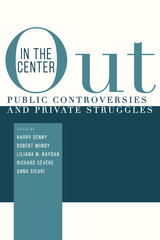
A diverse group of contributors interweaves personal experience with writing center theory and critical race theory, as well as theories on the politics and performance of identity. In doing so, Out in the Center extends upon the writing center corpus to disrupt and reimagine conventional approaches to writing center theory and practice. Out in the Center proposes that practitioners benefit from engaging in dialogue about identity to better navigate writing center work—work that informs the local and carries forth a social and cultural impact that stretches well beyond academic institutions.
Contributors:
Allia Abdullah-Matta, Nancy Alvarez, Hadi Banat, Tammy S. Conard-Salvo, Michele Eodice, Rochell Isaac, Sami Korgan, Ella Leviyeva, Alexandria Lockett, Talisha Haltiwanger Morrison, Anna Rita Napoleone, Beth A. Towle, Elizabeth Weaver, Tim Zmudka
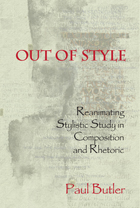
Scholars in composition know that the ideas about writing most common in the discourse of public intellectuals are egregiously backward. Without a vital approach to stylistics, Butler argues, writing studies will never dislodge the controlling fantasies of self-authorized pundits in the nation’s intellectual press. Rhetoric and composition must answer with a public discourse that is responsive to readers’ ongoing interest in style but is also grounded in composition theory.
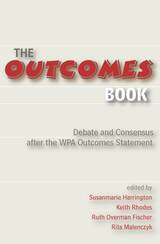
The WPA Outcomes Statement is important because it represents a working consensus among composition scholars about what college students should learn and do in a composition program. But as a single-page document, the statement cannot convey the kind of reflective process that a writing program must undertake to address the learning outcomes described.
The Outcomes Book relates the fuller process by exploring the matrix of concerns that surrounded the developing Statement itself, and by presenting the experience of many who have since employed it in their own settings.
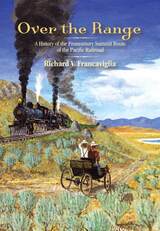
Francaviglia looks anew at the geographical-historical context of the driving of the golden spike in May 1869. He gazes outward from the site of the transcontinental railroad's completion—the summit of a remote mountain range that extends south into the Great Salt Lake. The transportation corridor that for the first time linked America's coasts gave this distinctive region significance, but it anchored two centuries of human activity linked to the area's landscape.
Francaviglia brings to that larger story a geographer's perspective on place and society, a railroad enthusiast's knowledge of trains, a cartographic historian's understanding of the knowledge and experience embedded in maps, and a desert lover's appreciation of the striking basin-and-range landscape that borders the Great Salt Lake.

READERS
Browse our collection.
PUBLISHERS
See BiblioVault's publisher services.
STUDENT SERVICES
Files for college accessibility offices.
UChicago Accessibility Resources
home | accessibility | search | about | contact us
BiblioVault ® 2001 - 2024
The University of Chicago Press









